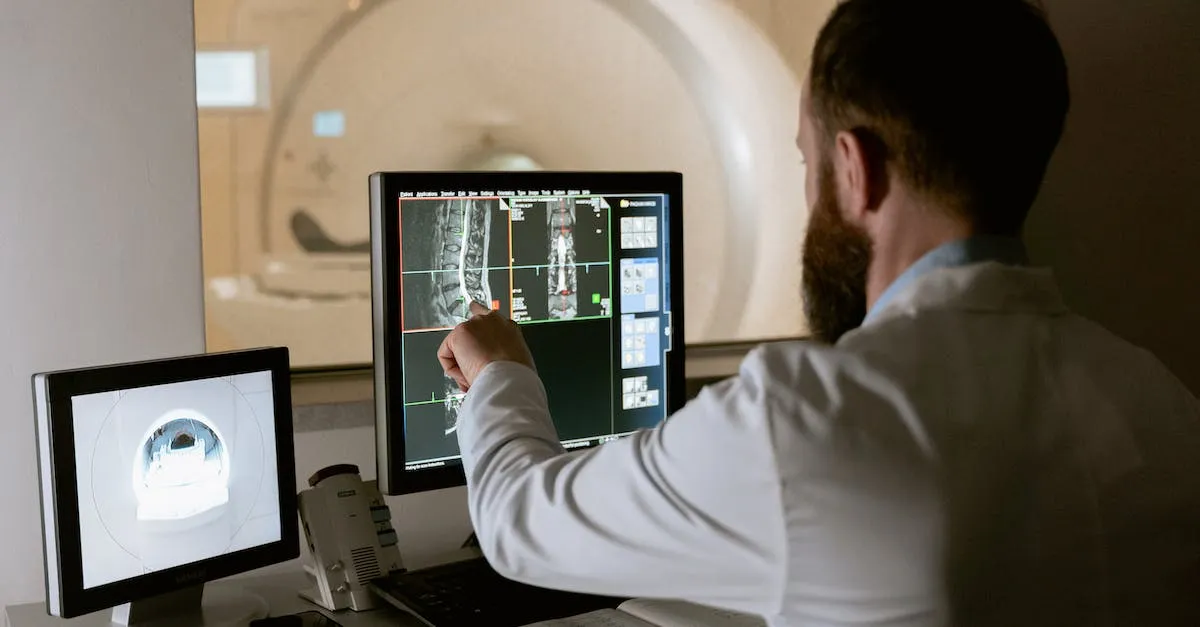What Is The Point Of Science?
Science has fundamentally transformed nearly every aspect of modern life, from medicine to technology to our understanding of the universe. But have you ever wondered – what exactly is the point of science?
If you’re short on time, here’s a quick answer to your question: the point of science is to build an accurate understanding of the natural world through systematic observation, experimentation, and analysis. Now let’s explore the purpose and value of science in greater depth.
In this comprehensive article, we’ll examine the core goals that drive scientific pursuits, review the key benefits science provides to humanity, and discuss the intrinsic rewards of the scientific process itself.
We’ll make the case for why science is an invaluable human endeavor with an essential role in society.
The Aims and Motivations of Science
Science is a systematic and organized approach to acquiring knowledge and understanding the natural world. It is driven by several aims and motivations that contribute to its significance in society. By exploring these aims, we can gain a deeper appreciation for the purpose and value of scientific research and discovery.
Understanding How the World Works
One of the primary aims of science is to understand how the world works. Scientists seek to unravel the mysteries of the universe, from the microscopic realm of atoms to the vastness of outer space. Through observation, experimentation, and analysis, they strive to uncover the underlying principles and mechanisms that govern natural phenomena.
By understanding these fundamental processes, scientists can develop theories and models that explain and predict the behavior of the world around us.
Discovering Fundamental Truths
Science is also driven by the desire to discover fundamental truths about the universe. Through rigorous investigation, scientists aim to uncover objective knowledge that transcends personal beliefs and biases.
By relying on evidence-based reasoning and the scientific method, they can establish facts that form the foundation of our understanding of the world. These truths not only expand our collective knowledge but also challenge existing theories and paradigms, leading to further scientific advancements and progress.
Solving Practical Problems
In addition to expanding our understanding of the world, science plays a crucial role in solving practical problems. Scientists work to address societal challenges and improve the quality of life by developing innovative technologies, medicines, and solutions.
For example, advancements in medical research have led to the development of life-saving treatments and vaccines, while breakthroughs in renewable energy have the potential to mitigate climate change. By tackling real-world problems, science can make a tangible and positive impact on society.
The Benefits Science Provides to Humanity
Science plays a vital role in advancing society and improving the lives of individuals around the world. Through its rigorous methodology and systematic approach, science generates knowledge that leads to numerous benefits. Here are some of the ways in which science benefits humanity:
Technological Innovation
One of the major benefits of science is the continuous advancement in technology. Scientific research and discoveries have paved the way for groundbreaking inventions and innovations that have revolutionized our daily lives.
From the development of smartphones and high-speed internet to the exploration of space and the creation of renewable energy sources, science has played a key role in driving technological progress. This progress has not only made our lives more convenient but has also opened up new possibilities for communication, transportation, and entertainment.
Medical and Health Advances
Science has made significant contributions to the field of medicine and healthcare, leading to improved treatments, cures, and preventive measures for various diseases. Through scientific research, we have gained a deeper understanding of the human body, its functions, and the causes of diseases.
This knowledge has led to the development of life-saving vaccines, effective medications, and advanced surgical techniques. For instance, the discovery of penicillin by Alexander Fleming revolutionized the field of antibiotics, saving countless lives.
Additionally, advancements in medical technology, such as MRI scanners and gene editing tools, have enhanced diagnostic capabilities and personalized treatments.
Informing Policy Decisions
Science plays a crucial role in informing policy decisions at various levels, from local to global. Governments and organizations rely on scientific research to make informed decisions on issues such as climate change, public health, and resource management.
By providing evidence-based data and analysis, science helps policymakers understand the potential impacts of different policies and make decisions that are in the best interest of society. For example, scientific studies on the effects of greenhouse gas emissions have played a pivotal role in shaping international agreements and policies aimed at mitigating climate change.
It is important to note that the benefits of science are not limited to these three subheadings. Science touches every aspect of our lives, from the food we eat to the materials we use, and even the understanding of our own existence.
It is a continuous journey of exploration and discovery that brings about progress and improvement for humanity as a whole.
The Rewards of Doing Science
Engaging in scientific research and exploration offers numerous rewards and benefits. Not only does it contribute to the advancement of knowledge and understanding, but it also provides individuals with a range of personal and professional advantages.
Intellectual Stimulation
One of the primary rewards of doing science is the intellectual stimulation it provides. Scientists are constantly challenged to think critically, solve complex problems, and push the boundaries of what is known.
This process of inquiry and discovery keeps the mind active and engaged, fostering a sense of curiosity and wonder.
According to a study conducted by the National Institute of Health, engaging in intellectually stimulating activities such as scientific research can help reduce the risk of cognitive decline and improve cognitive function in older adults.
This highlights the long-term benefits of pursuing scientific endeavors not only for professional growth but also for maintaining cognitive health.
Opportunity for Creativity
Contrary to popular belief, science is not solely a rigid and formulaic pursuit. In fact, it offers ample opportunities for creativity. Scientists often need to think outside the box, devise innovative solutions, and design experiments that yield meaningful results.
This creative aspect of science allows researchers to express their unique perspectives and find novel approaches to solving complex problems.
For example, in the field of bioengineering, scientists are constantly finding creative ways to develop new medical treatments and technologies. By combining their scientific knowledge with imaginative thinking, they have been able to make significant advancements in areas such as tissue regeneration and prosthetics.
Sense of Discovery
Perhaps one of the most rewarding aspects of doing science is the sense of discovery it brings. Scientists have the privilege of uncovering new knowledge, unraveling mysteries, and making groundbreaking contributions to their respective fields.
This feeling of making a meaningful impact and contributing to the collective understanding of the world can be incredibly fulfilling.
Take the discovery of the Higgs boson particle, for example. Scientists at CERN spent years conducting experiments and analyzing data to confirm the existence of this elusive particle. When they finally announced their findings in 2012, it was a momentous occasion in the scientific community, leading to a Nobel Prize and revolutionizing our understanding of particle physics.
Conclusion
While science can seem esoteric and detached from everyday life, its purpose and value become clear when we consider what it aims to achieve and what it provides to humanity. By systematically building knowledge of how the universe works, science empowers us to develop new technologies, treat diseases, and make informed decisions that shape our world.
And the process of doing science offers deep intellectual rewards and a profound sense of exploring the unknown. Science is a pillar of modern civilization with an essential role to play for the benefit of all.







